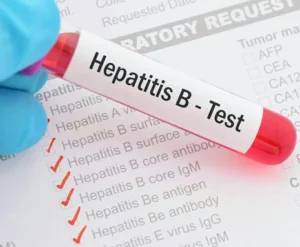Addressing Gaps in the Hepatitis Virus Disease Response
According to the WHO an estimated 20 million people were chronically infected with hepatitis B and C in Nigeria as of 28 July 2020. Vaccination remains a critical intervention towards elimination of hepatitis B virus by 2030. A strong focus on prevention of hepatitis B among mothers and newborns is key to a hepatitis free future.
Viral hepatitis is an inflammation of the liver due to a viral infection. Five strains of the virus responsible for hepatitis namely hepatitis A virus (HAV), hepatitis B virus (HBV), hepatitis C virus (HCV), hepatitis D virus (HDV) and hepatitis E virus (HEV) can cause acute hepatitis. Only HBV and HCV frequently cause chronic hepatitis, which can lead to scarring of the liver (cirrhosis) and primary liver cancer.
There is a gap in the Nigerian hepatitis response which needs to be urgently addressed. What is the Nigerian health care system doing about those with chronic hepatitis B or C infection who are neither mothers nor newborns? Birth-dose vaccination has potential to eliminate hepatitis B in the future generation but does little for the current generation of chronically infected people. The importance of testing and treatment cannot be over-emphasized as mainstay path for elimination of hepatitis B and C for the current generation.
While it is crucial to get children vaccinated against hepatitis B, it is also important to encourage adults who do not know their status to go for screening against hepatitis B and C. Of the over 20 million estimated Nigerians chronically infected with hepatitis B and C, how many have access to prevention and treatment services?
 It is worrisome that most Nigerians have no access to treatment for hepatitis B and C after testing positive. Treatment is either unavailable or unaffordable to most Nigerians. Treatment or prevention of disease progression should be made available and affordable to the over 20 million Nigerians chronically infected with hepatitis B and C. These key services need to be made available to the populace through primary health centers as part of universal health coverage.
It is worrisome that most Nigerians have no access to treatment for hepatitis B and C after testing positive. Treatment is either unavailable or unaffordable to most Nigerians. Treatment or prevention of disease progression should be made available and affordable to the over 20 million Nigerians chronically infected with hepatitis B and C. These key services need to be made available to the populace through primary health centers as part of universal health coverage.
The writer recalls being told his HBV status during a recent visit to one of the secondary health facilities in the FCT. On receiving the test result which indicated that I tested positive for hepatitis B, I asked what could be done about it. I was told there was no available treatment in that facility. The health care worker explained that a vaccine was available but only people who tested negative could be vaccinated. He said treatment was not available in that health facility.
According to the WHO chronic hepatitis can be treated with medicines, including oral antiviral agents. Treatment can slow the progression of cirrhosis, reduce the incidence of liver cancer and improve long term survival. People who start treatment for hepatitis B must continue for life. However, most Nigerians who test positive for hepatitis B literally leave their fate to chance – they do nothing as they cannot afford treatment.
It is pertinent to ask, ‘are there non-pharmacological measures that can prevent or ameliorate the progression of hepatitis B virus? What about nutrition and natural medicine? Is there any justification for ignoring effective proven phytomedicines which have been used for hundreds of years when the health authorities have not provided any alternatives?
Perhaps it is time to look to complementary and alternative medicine for efficacious and safe treatments for viral hepatitis. Herbal medicines have used to treat hepatitis for hundreds of years in Asian countries especially China and Japan. There are still concerns about toxicity and the need for more clinical trials to prove the efficacy and safety of herbal treatments for liver diseases. But that that does not take anything from the fact that there are gaps in the Nigerian public health response to hepatitis virus disease. There is no better opportunity to seek answers from complementary and alternative medicine than now.







